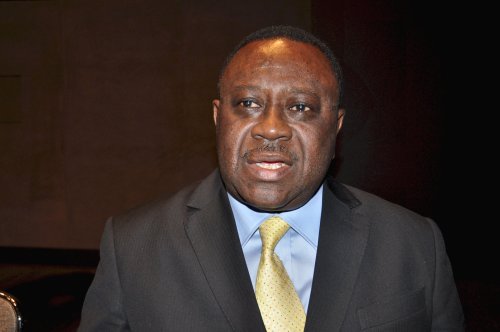In Korea, Ghana is better known for its chocolate than its investment opportunities but recently the landscape has changed.
A couple of months ago, STX broke ground on their $10 billion deal to build 200,000 housing units in the west African nation -― a plan that is expected to make a substantial dent in Ghana’s 1 million housing deficit.
“We believe that on the back of that enterprise, we can reach out to more Koreans because the prospects here are good and Koreans can use Ghana as a springboard to the ECOWAS (Economic Community of West African States) market,” said Ghana Investment Promotion Centre CEO George Aboagye.
A couple of months ago, STX broke ground on their $10 billion deal to build 200,000 housing units in the west African nation -― a plan that is expected to make a substantial dent in Ghana’s 1 million housing deficit.
“We believe that on the back of that enterprise, we can reach out to more Koreans because the prospects here are good and Koreans can use Ghana as a springboard to the ECOWAS (Economic Community of West African States) market,” said Ghana Investment Promotion Centre CEO George Aboagye.

Ghana is well endowed with natural resources and agriculture and agroprocessing accounts for roughly one-third of the country’s GDP, but Ghana is looking to expand on it’s traditional markets into other areas like information communication technology, attracting investments in the oil and gas sectors, energy, manufacturing, real estate and financial services.
From 1994 to last year, Korean companies invested $64 million in the Ghanaian economy.
“We are officially recognized as the easiest place to do business in West Africa by the World Bank,” said Aboagye to The Korea Herald.
“We are a politically stable country, we have comparative advantage in terms of tax relief, we are at peace, there is personal safety and security for people who live in Ghana which is very high compared to other African countries,” he added.
Sound macroeconomic management along with high prices for gold and cocoa helped sustain GDP growth in 2008-2010. Couple that with its expanding oil and gas sector, and Ghana is expected to grow at 11 percent this year.
“We are the second fastest growing economy in the world after Qatar, according to the World Bank,” he noted.
Still, the perception of Africa makes it difficult for owners of small and medium sized companies to take the plunge in a continent that is constantly overshadowed by unrest, corruption and wars.
“Our constitution protects any investment against expropriation and nationalization,” he said. “We have lots of incentives such as duty relief for plant machinery and equipment, we also have a quota system that allows investors to bring in workers, and we provide free transfer of proceeds from the sale of investments.”
Furthermore, Korea and Ghana are hammering out the details of an investment treaty that will make it possible for companies on both sides to elect where they would like to pay their taxes.
Last year, the country’s tourism sector attracted $500 million in tourism revenue, yet, the World Economic Forum placed Ghana as the lowest performer in the sector.
“By the end of this year, we will increase our tourism accounts to about a million people (up from 800,000 last year),” he predicts.
As business prospects increase in the country, so does the possibility for Ghana to achieve that goal.
“The reason why this is a challenge, we have not developed many five-star hotels. Hence, we are asking and promoting the sector in terms of attracting the necessary infrastructure for tourism,” Aboagye said.
The Korean Chamber of Commerce and Industry has pledged its commitment to find partners to help improve Ghana’s fortunes.
By Yoav Cerralbo (yoav@heraldcorp.com)







![[KH Explains] How should Korea adjust its trade defenses against Chinese EVs?](http://res.heraldm.com/phpwas/restmb_idxmake.php?idx=644&simg=/content/image/2024/04/15/20240415050562_0.jpg&u=20240415144419)










![[Today’s K-pop] Stray Kids to return soon: report](http://res.heraldm.com/phpwas/restmb_idxmake.php?idx=642&simg=/content/image/2024/04/16/20240416050713_0.jpg&u=)